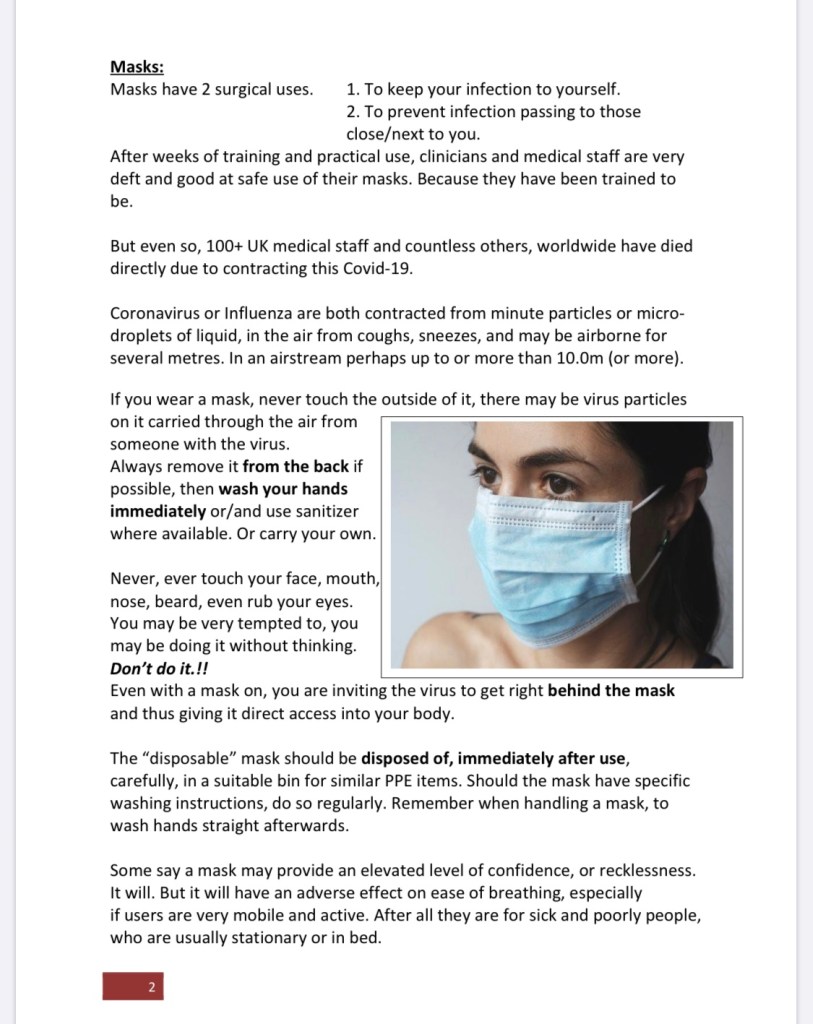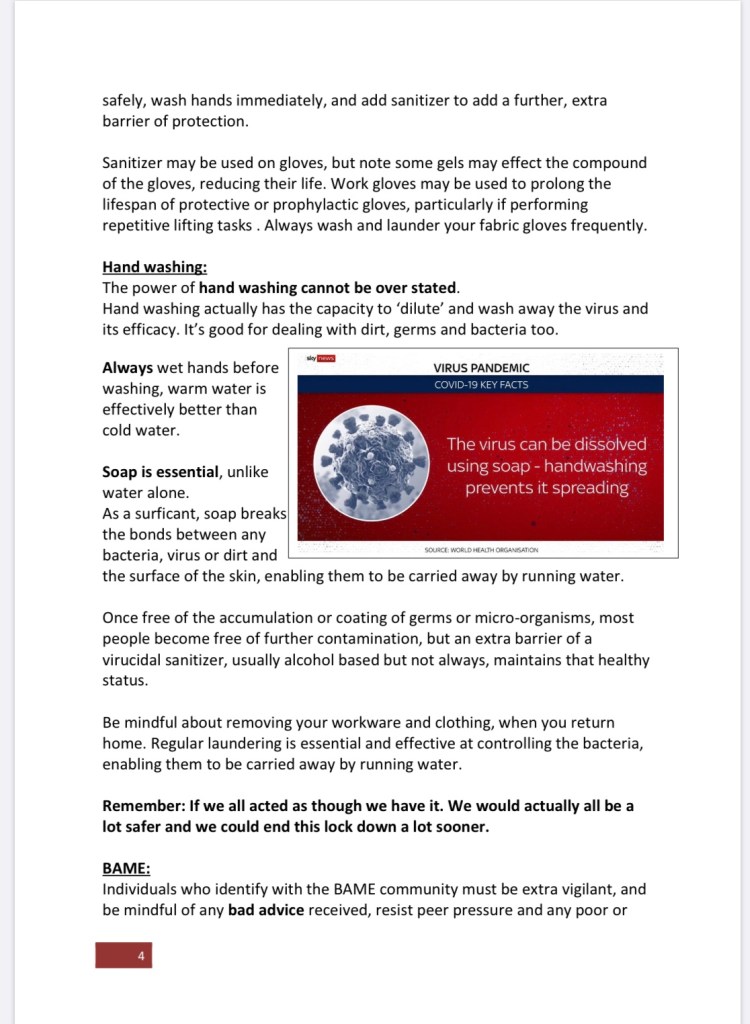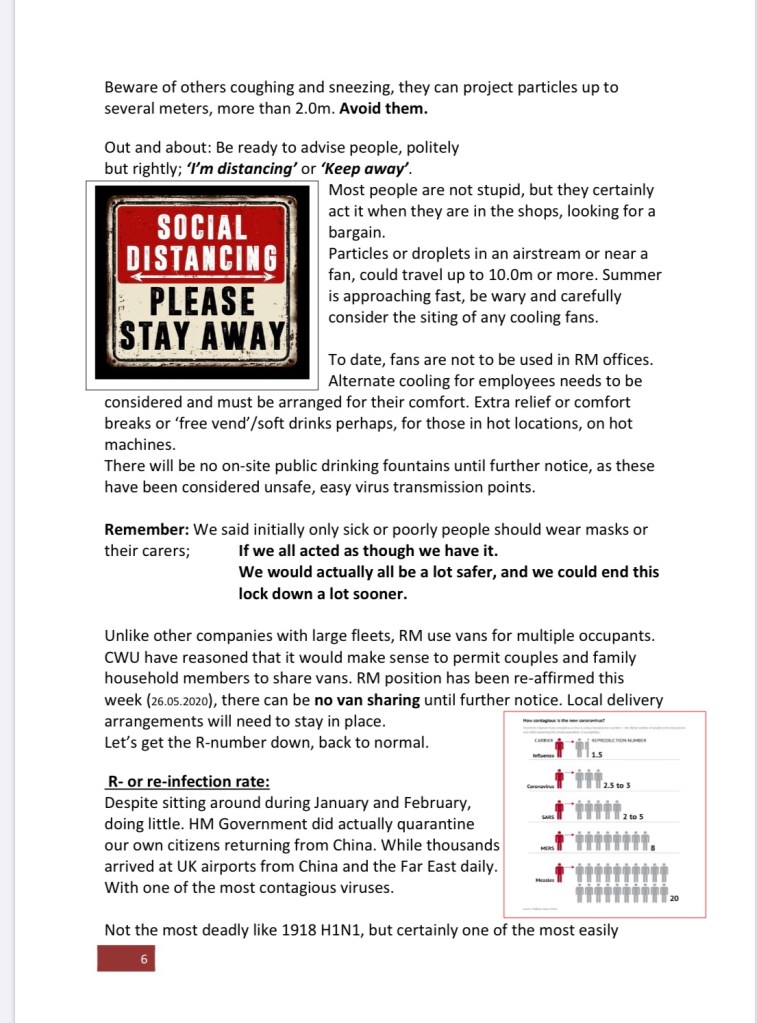Coronavirus (COVID-19): Cleaning of Royal Mail Buildings
This LTB is to provide further information on the cleaning approach that is undertaken by Property Facilities Solutions (PFS) Ltd of Royal Mail buildings.
Early on in the COVID-19 outbreak, the Royal Mail Property Facilities Solutions Safety, Health & Environmental & Soft Services teams carefully reviewed the cleaning regime recommended by Public Health England (PHE) to ensure that the standards for cleaning in a non-healthcare setting meet or exceed this standard. The standards issued by PHE are as follows:-
“cleaning an area with normal household disinfectant after someone with suspected coronavirus (COVID-19) has left will reduce the risk of passing the infection on to other people
using a disposable cloth, first clean hard surfaces with warm soapy water. Then disinfect these surfaces with the cleaning products you normally use. Pay particular attention to frequently touched areas and surfaces, such as bathrooms, grab-rails in corridors and stairwells and door handles
Public areas where a symptomatic individual has passed through and spent minimal time, such as corridors, but which are not visibly contaminated with body fluids can be cleaned thoroughly as normal. All surfaces that the symptomatic person has come into contact with must be cleaned and disinfected, including:
- objects which are visibly contaminated with body fluids
- all potentially contaminated high-contact areas such as bathrooms, door handles, telephones, grab-rails in corridors and stairwells
Use disposable cloths or paper roll and disposable mop heads, to clean all hard surfaces, floors, chairs, door handles and sanitary fittings, following one of the options below:
- use either a combined detergent disinfectant solution at a dilution of 1,000 parts per million available chlorine
or
- a household detergent followed by disinfection (1000 ppm av.cl.). Follow manufacturer’s instructions for dilution, application and contact times for all detergents and disinfectants
or
- if an alternative disinfectant is used within the organisation, this should be checked and ensure that it is effective against enveloped viruses”
PFS Ltd. Cleaners are using disposable cloths and a virucidal chemical which has both disinfecting and cleaning properties. All high touchpoint areas in a building are cleaned at least once a day in a delivery office setting or up to three times a day for a larger, 24-hour site. This exceeds the PHE standard of cleaning surfaces using warm soapy water and following up with a household disinfectant as described above and is more effective for eradicating the virus from surfaces.
Where a suspected or confirmed case of COVID-19 is notified to the business, then a risk assessment is undertaken by Central Postal Control (CPC) and a choice of two additional cleans that can be instigated – these are termed “precautionary clean” and “intense clean”. The cleans will be triggered as follows:
Intense cleans – symptomatic individual(s) has been on site within the last 2 days
Precautionary – symptomatic individual(s) has been on site between 3-5 days.
These cleans will be instigated by CPC through the Property Helpdesk.
A precautionary clean is where the building will receive a targeted clean in addition to the “Business as usual” clean. The cleaning team will discuss where the individual has been and the areas that that need to be cleaned with the person in control, using the virucidal cleaning chemical described above. Cleaners will wear disposable aprons or overalls and disposable gloves, which will be disposed of safely following the clean. This approach is in line with the PHE recommendations.
An intense clean is where a specialised, targeted clean will take place. The Cleaning team will attend site and discuss the areas where the affected individual has worked or spent time with the unit manager, ensuring that all areas are fully disinfected. Cleaners will be wearing a higher level of PPE for this clean (gloves, face shield and disposable overalls) which will be disposed of safely following the clean. As with the other types of clean, the virucidal cleaner described above will be used, and then an additional application of a diluted bleach solution will be added to provide an additional layer of protection.
It is important to note that this approach has been reviewed against guidance issued by the Institute of Occupational Safety and Health (IOSH), Public Health England (PHE) and the World Health Organisation (WHO) and is confirmed as meeting or exceeding these requirements.
Any enquiries relating to this LTB should be directed to Ray Ellis (rellis@cwu.org).
Yours sincerely
Ray Ellis
Acting National Health, Safety & Environment Officer
20LTB272 Coronavirus (COVID-19) Cleaning of Royal Mail Buildings
1. Positive Case Flow Chart v6
2. Positive Case Guidance v1.7
Share this with your friends










